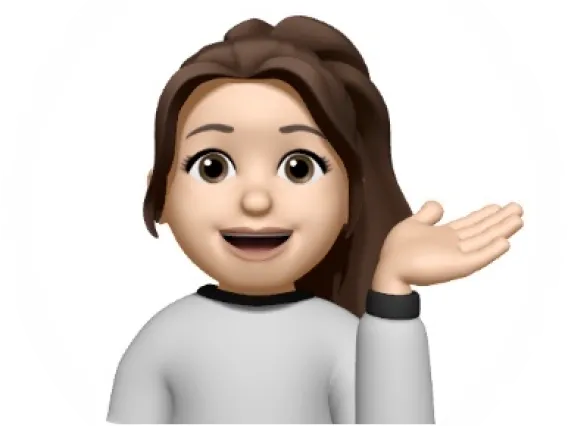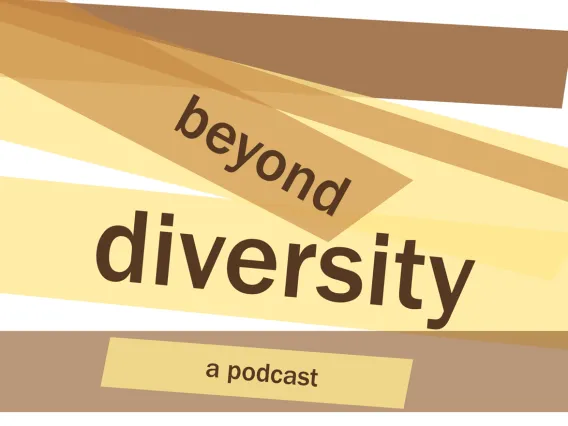Beyond Diversity a Podcast
This podcast looks beyond the educationese to explore what diversity is and what going beyond classic definitions of diversity could look like in teaching, learning, and community making in and outside of the classroom.
Meet the Team

Treya Allen, Ed.D.
Treya Allen serves as the DEI-Focused Instructional Support Coordinator for the Office of General Education. She loves books, libraries, and archives. Her happiest place is in the middle of any book stack in any book collection.

Katie Southard, Ph.D.
Katie Southard serves as the Director of Instructional Support in the Office of General Education. She is a master of creative chaos, a creator of understanding, and the champion of all humans.

Audrey J. T. Kahn, Ph.D.
Audrey serves as the High Impact Practices and Student Experience Coordinator for the Office of General Education. An education developer to her core, she is an activator and a brilliant connector. Her favorite thing to do is learn and she proudly wears the title of collaborator.
The Beyond Diversity Philosophy
Within higher education, diversity is positioned as a study of comparative difference. This means that any action toward increasing diversity is less about understanding and more about representational difference. The Beyond Diversity philosophy invites learners to move beyond incomplete definitions of difference that are compared to some 'norm'. It challenges learners to think through perspectives, life experiences, content, human experiences, and actively engage in centering humans in ways that deepen our understanding of an experience that we may not share. This act helps to enhance the ways in which ideas, experiences, and knowledge is shared, and fosters an appreciation of our uniqueness as a strength in the learning environment.
Beyond Diversity Latest Episodes

Beyond Diversity Podcast Trailer
This podcast challenges all learners to think through what it means to go beyond diversity in learning spaces. We hope you will join us on this journey.

From HIPs to Student Belonging
Welcome to Season 2! In this episode, Dr. Audrey J.T. Kahn talks High Impact Practices (HIPs), student voice and choice, and making the classroom a place of belonging and retention. She also directs instructors and learners on where to start with implementing HIPs and how to self-audit to improve student experience and learning in your class.

Afternotes Episode 3 Season 2
Dr. Audrey J. T. Kahn provides listeners with several goodies in this episode. The links can be found below.
Interested in diving deeper into HIPs or determining if you use the 8 Key Elements in your own instruction or learning practice? visit HIP Tips Asynchronous Professional Development.
Wondering how other instructors have incorporated HIPs in their content areas and assignments? Visit the Exceptional Signature Assignment Repository for ideas and other practices.
Interested in connecting with Dr. Audrey J.T. Kahn? Schedule a Consultation With Dr. Audrey J.T. Kahn.
Past Episodes
Episode Summary:
In this inaugural episode of the Beyond Diversity podcast we discuss the operational definition of diversity, how it differs from the beyond diversity philosophy, and what you can expect in this series. Join us for this journey!
Afternotes Summary:
Episode 1 Afternotes review the concepts of 'learning in the white spaces' and moving beyond 'representational diversity'. Afternotes are meant to help learners dig deeper into concepts, content, and/or conversations.
Episode Summary:
In this special 2 part episode, we learn about language as a tool of access and connection. Dr. Jaime Meijia Mayorga joins us as he discusses the perspective of language instruction from the perspective of access and barrier breaking. Dr. Meijia Mayorga is a scholar in Second Language Acquisition and Teaching at The University of Arizona.
Episode 2 Teaching Language As A Tool of Access (24:23)
Afternotes Summary:
The Afternotes of Episode 2 review the concept of ethnostress coined by scholars Bob Antone and Diane Hill. You can read their white paper here.
Episode Summary:
In the 2nd of a two part episode, Dr. Mayorga delves deeper into research methodologies that center Indigenous ways of knowing and what it means to do research with and research for versus research on a population or group of people. This episode invites the listener to go beyond just collecting data and thinking through what data collection would look like if we considered ways of knowing that guide the lives of co-researchers, or what a common research course would call participants.
Episode 3 Centering Indigenous Research Methodologies (31:49)
Afternotes Summary:
In this episodes afternotes we dig into what it means to be a culturally relevant and centered researcher with Dr. Mejia Mayorga. We also explore what it means to center indigenous ways of knowing in scholarship, research, and teaching.
Episode Summary:
In this episode we speak with Senior Technologist, Cheryl Neal, about building technology bridges and what it means to adopt education tech as a means of intentional accessibility.
Episode 4 From Tech Barriers to Tech Bridges (30:54)
Afternotes Summary:
In this Afternote review the West Area Computing group, Dorothy Vaughan, and the work of Margot Lee Shetterly. We think through the term Hidden Figures and draw similar parallels to women working in Science, Technology, Engineering and Math/Medicine (STEM) today.
Episode Summary:
In this episode we review the research of Dr. Treya Allen on Black Mental Health and Culturally Relevant Frameworks. This episode is based on her research that she is engaged in with various scholars across the nation. Dr. Allen's work looks specifically at what it might mean to think through using cultural based frameworks (Afrocentricity) as the grounding knowledge based for providing mental health services beyond westernized talk therapy and how mental health services can and should be embedded any and everywhere across the institution.
Episode 5 Black Mental Health and Culturally Relevant Frameworks (27:09)
Episode Summary:
In this special two part episode, we discuss all things syllabus with Dr. Mascha Gemein. In part one, we define what a syllabus really is, the function of the syllabus, and we get into the basic structure of the syllabus.
Episode 1 Season 2: Demystifying the Syllabus (19:53)
Episode Summary:
In part two of our time with Dr. Mascha Gemein, we discuss her framework that she has developed to diversify not only syllabus content but also accessibility, modalities, and relationships established by this one document.

